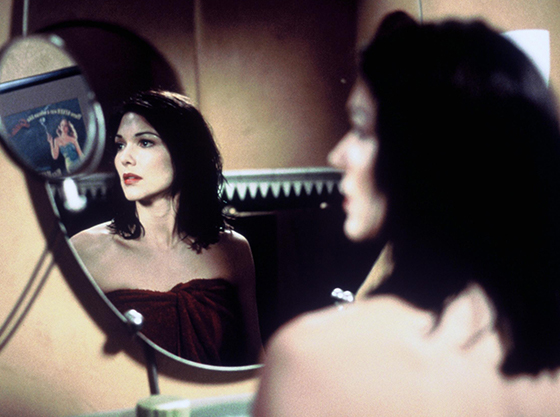
Have you ever thought about the role sound plays in shaping your experience of films? Thoughtful use of audio can elevate a great film or even bring a mediocre one to life.
Our newest film series, Cabaret Cinema: Soundtrack highlights some of the most ear-catching films in film history, as selected by film industry experts. On Friday nights, visitors are invited to watch the films in the Rubin’s theater with special introductions from the filmmakers and other experts who selected them.
Below are four films that we’re listening to at Cabaret Cinema. Read on to learn why our introducers chose them as some of the best movies they’ve ever heard:
1) Barton Fink
1991, Joel Coen, USA, 117 min.
Selected and introduced by director and writer Pamela Romanowsky
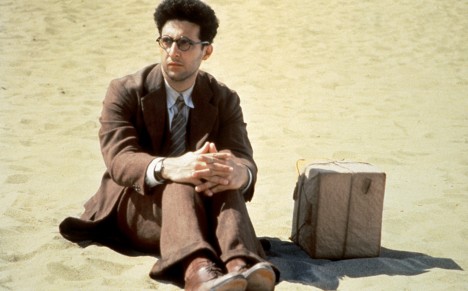
“Sound is the side door directly into a character’s mind, and in Barton Fink the soundscape roots us firmly in the mind of our anguished and neurotic protagonist. The film feels so much in Barton’s head that not only do we have direct access to sit in it with him, we begin to wonder if the entire movie takes place there, in his imagination. To accomplish such a feat required a long and thoughtful collaboration between the filmmakers, sound designer Skip Lievsay, and composer Carter Burwell that has become a legendary example of best practices. The design and score work together seamlessly, working different frequencies and carving out space for each to ebb and swell, often taking the narrative lead during long stretches without dialogue, where the sound propels the plot and emotional arcs. Barton Fink is a masterclass in using sound to its full potential in film, as a peer to the image and essential storytelling tool, not just a portion of finishing.” — Pamela Romanowsky
Catch Barton Fink at the Rubin on August 11.
2001, David Lynch, USA, 146 min.
Selected and introduced by Tony-nominated composer and sound director Dave Malloy.
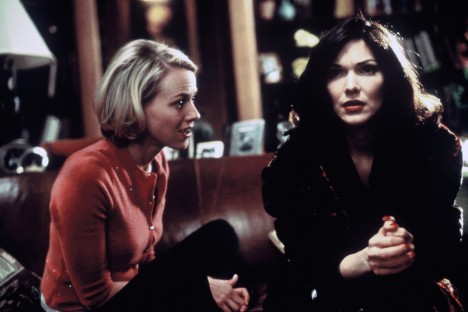
“Mulholland Drive is in many ways a film about film and all of its fictions and illusions; the score and sound design explore these themes with some of the most disturbing sounds, drones, and musical sequences in cinema.” — Dave Malloy
Catch Mulholland Drive at the Rubin on September 22.
2007, Paul Thomas Anderson, USA, 158 min.
Selected and introduced by Broadway composer and lyricist David Yazbek.
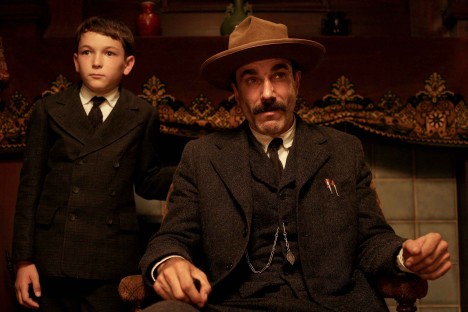
“There Will Be Blood surprised me with its score in a way I hadn’t been hit since Star Wars. But it also has its own sound-symphony going on in the portrayal of fire, water, oil, the violence of nature and of unnatural things. The way the human voice is twisted and sculpted to help explicate character (especially the two main characters) and the way silence is used. Also the film (like any good film) has a rhythm—a cadence that is suggested by the epic time frame, honored by the director and composer, and finalized by the film editor, who made it a masterpiece.” — David Yazbek
Catch There Will Be Blood at the Rubin on September 29.
4) Dr. Strangelove, or: How I Learned to Stop Worrying and Love the Bomb
1964, Stanley Kubrick, USA/UK, 95 min.
Selected and introduced by filmmaker Shalini Kantayya
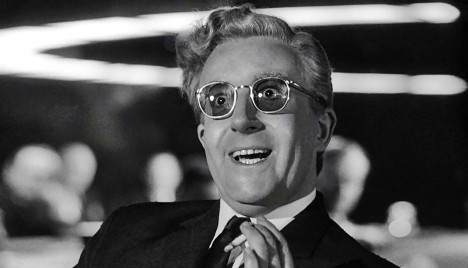
“Film guru Roger Ebert called the 1964 film Dr. Strangelove: How I Learned to Stop Worrying and Love the Bomb “˜arguably the best political satire of the century.’ Filmed by American master Stanley Kubrick, it’s no surprise that Dr. Strangelove continues to have a kind of cult following. Kubrick yields dark satirical humor to make social commentary about the absurdity of war that remains relevant today. His ironic music choices, which both draw from and subvert the folklore of WWII, command a tone that is simultaneously wistful and apocalyptic. An exploration of Cold War politics and the potential for self-destruction, Kubrick’s Dr. Strangelove creates a vision of the future that lingers with you as long after you leave the film.” — Shalini Kantayya
What’s the best movie you’ve heard? Tell us in the comments below, and see if it’s one of the picks in our Cabaret Cinema: Soundtrack series. Even if you know some of these movies by heart, you’ll be sure to have an ear-opening experience!

